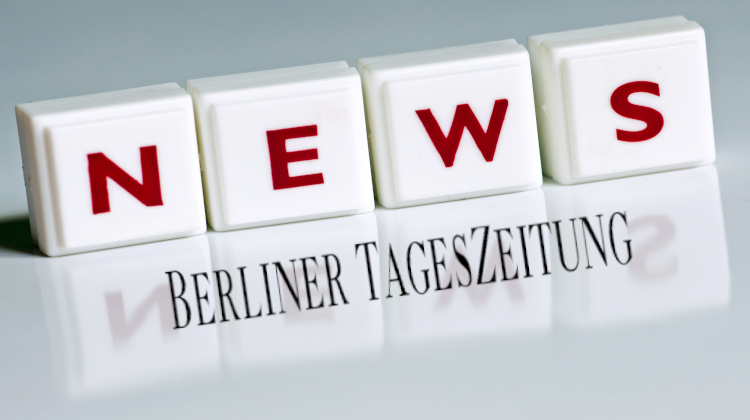
Moscow to shut down Deutsche Welle bureau in Russia

Russia said Thursday it is closing the Moscow bureau of German broadcaster Deutsche Welle and revoking staff accreditations in Russia, in response to Berlin's ban on the German-language channel of Russian state TV network RT.
Deutsche Welle called the decision "absurd" and a "complete overreaction".
The German government said the move was unacceptable and had "no basis of comparison whatsoever" with Berlin's ruling on RT.
"I urgently appeal to the Russian side not to abuse RT's licensing problems for a political reaction," Germany's Culture Minister Claudia Roth said.
The announcement comes with tensions mounting between Russia and the West, particularly over fears of a Russian invasion of Europe's ally Ukraine.
The closure also highlights the Kremlin's increasingly hostile position towards foreign media in the wake of several high-profile expulsions of prominent foreign journalists.
The Russian foreign ministry said in a statement Thursday it will also "terminate the satellite and other broadcasting (output) of Deutsche Welle" on Russian territory.
It added that it was initiating the process of designating the German media a "foreign agent" and said that further reciprocal measures will be announced in the future.
Deutsche Welle -- a German state-owned broadcaster -- has services in 30 languages, including Russian.
The moves comes after Germany's broadcasting regulator on Wednesday announced it was banning the transmission of the channel "RT DE" over the lack of a broadcasting licence.
- 'We are shocked' -
Deutsche Welle's chief Peter Limbourg said the order was an "absurd reaction of the Russian government".
"Even if we were to close it eventually, that will not affect our coverage of Russia -- rather, we will significantly boost our coverage," said Limbourg.
Deutsche Welle's Moscow bureau chief Juri Rescheto said he had been ordered to close the bureau by Friday morning.
"We are shocked. For all of us here, this news is very personal," he said, in comments published on the media's website.
Russian officials and pro-Kremlin media, meanwhile, welcomed the move.
Russian senator Andrei Klimov called Moscow's reaction "adequate".
"It is a responsive measure to the unfriendly acts from the German side," Klimov, who leads a committee on international affairs in the upper house of the Russian parliament, told the Ekho Moskvy radio station.
RT DE -- the German-language branch of RT -- was blocked from Europe's satellite network on December 22 at the request of German authorities, less than a week after going on air. But it was still available over the internet and via a mobile app.
In its response to the suspension, RT DE said it was broadcast from Moscow and had a Serbian broadcasting licence, which it said gives it the right to broadcast in Germany under European law.
But the German regulator said the channel was based in Berlin and did not have a "legitimate permit under European law".
Launched in 2005 as "Russia Today", state-funded RT has expanded with channels and websites in languages including English, French, Spanish and Arabic.
It has been accused by Western countries of distributing disinformation and Kremlin-friendly propaganda.
It has generated controversy in many countries, including the United States, where it was required to register as a "foreign agent", and in Britain, where authorities have threatened to revoke its broadcasting licence.
The channel has been banned in several countries, including the ex-Soviet republics Lithuania and Latvia.
In September, Google-owned YouTube issued a warning to RT DE for violating its coronavirus disinformation guidelines and then shuttered two channels for breaching user terms.
A third channel was blocked in December for trying to circumvent the earlier terminations.
In August, Moscow expelled a veteran BBC correspondent in retaliation for a Russian correspondent being denied accreditation by London.
Three months later, a Dutch correspondent was expelled on years-old administrative violations.
The decision to shut down the German media outlet comes following months of unprecedented pressure on independent media from Russian authorities.
Russia last year slapped a number of media outlets and journalists with the "foreign agent" label that requires them to carry out tedious administrative procedures.
L. Solowjow--BTZ

 London
London

 Manchester
Manchester
 Glasgow
Glasgow
 Dublin
Dublin
 Belfast
Belfast
 Washington
Washington
 Denver
Denver
 Atlanta
Atlanta
 Dallas
Dallas
 Houston Texas
Houston Texas
 New Orleans
New Orleans
 El Paso
El Paso
 Phoenix
Phoenix
 Los Angeles
Los Angeles

